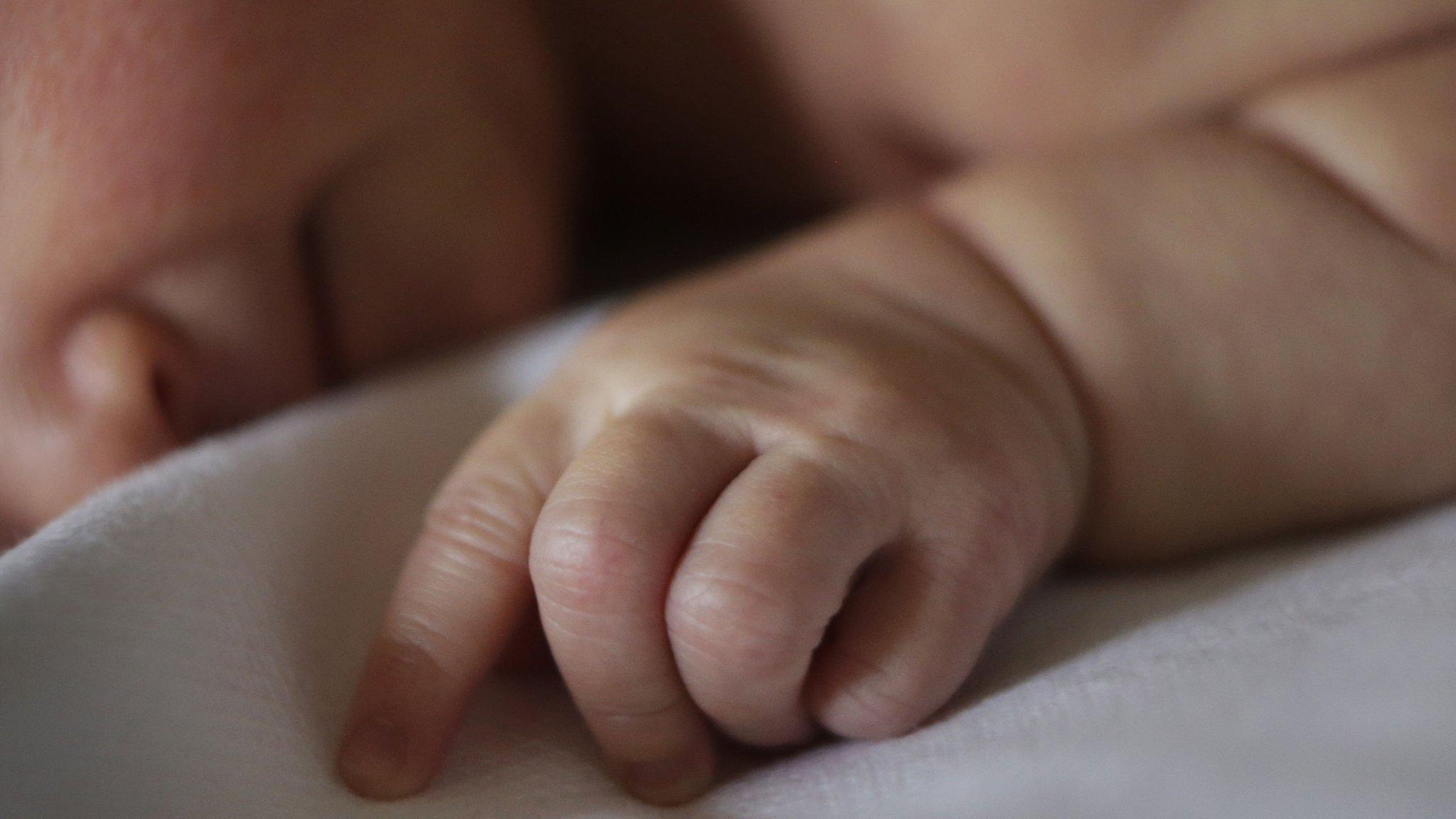Contraceptive project to help vulnerable women extended
- Published
A mother describes moment her baby was taken into care
A project aimed at reducing the number of children taken into care by offering contraception to vulnerable women is to extend its work across England.
The Pause project, which began in London in 2013, is to receive £6.8m from the government.
It works with women at risk of repeated pregnancies, offering practical and emotional support and asking them to use a contraceptive implant or coil.
One of the women on the scheme said it gave her time to "sort herself out".
In 2015, almost 13,000 children were taken into care across England, at a cost to the taxpayer of hundreds of millions of pounds.
'Destructive cycle'
Sophie Humphreys, the chief executive of Pause, says the project is about giving women "a really clear space which doesn't get sabotaged by another pregnancy".
"This is pause, not stop. It's about breaking a destructive cycle that causes deep trauma for both the women and their children."
Pause now plans to work with up to 3,000 women over the six years of the programme.

The Pause programme began in Hackney in 2013 and has been trialled in other parts of London as well as Doncaster, Hull and Newcastle.
Pause has been awarded £6.8m by the Department for Education and will be launching new practices in 2017 in Barking & Dagenham, Bristol, Cumbria, Derby, North East Lincolnshire, Slough, St Helens, West Sussex and Wiltshire.
It will also pilot a preventative programme for care leavers aged 18 to 25.

Joanne (not her real name) had already had two sons taken into care when she became pregnant for a third time.
She had been in a violent relationship with a drug addict, and became hooked herself.
Midway through her third pregnancy, by a different man who was already off the scene, Joanne was told that social services would take her new baby into care as soon as he was born.
"To carry a baby around for nine months, to lay there knowing that he's getting taken away the next day, is pretty goddam hard," she told BBC Radio 5 live.
But she does not blame the authorities: "I had nowhere to live, I was using drugs. Basically it was unstable for a baby to be around me."
Huge progress
She then became pregnant again the following year. Joanne has borne four sons - all of whom have been taken into care.
But then came a knock on the door from Lesley Redpath, a Pause case worker tasked with finding women who might be eligible and interested in the scheme.
Lesley says Joanne signed up on the spot, describing it as a "light-bulb moment".
"I'm not quite sure she quite understood everything around the project," Lesley said, "but she felt she needed some support in her life at that time."
That was 15 months ago, and Lesley says Joanne has made huge progress.
"She's attending college, her housing is sorted, and she's paying off her arrears. I feel very positive about her future."
Challenging cases
Lesley says very few women are put off by the contraceptive, and it wasn't an issue for Joanne.
She says: "Eventually I would like to have another kid, but having the implant gives me another three years to sort myself out, find a job and better myself. That's what I'm trying to do.
"Everyone deserves a second chance. I've just got to be positive and stay strong."
Lesley says she is working with several other women, some of whose cases are even more challenging.
"I'm talking about women who don't know how to get up and have a wash because they've never been shown how to look after themselves.
"They've never been shown how to cut their own toenails. I'm talking about very basic self-care. And these are people who've had children.
"The women that we've worked with have slipped through all the netting."
You can hear more about the Pause programme on BBC 5 live Daily from 10:00 on Monday, 7 November.
- Published14 December 2015
